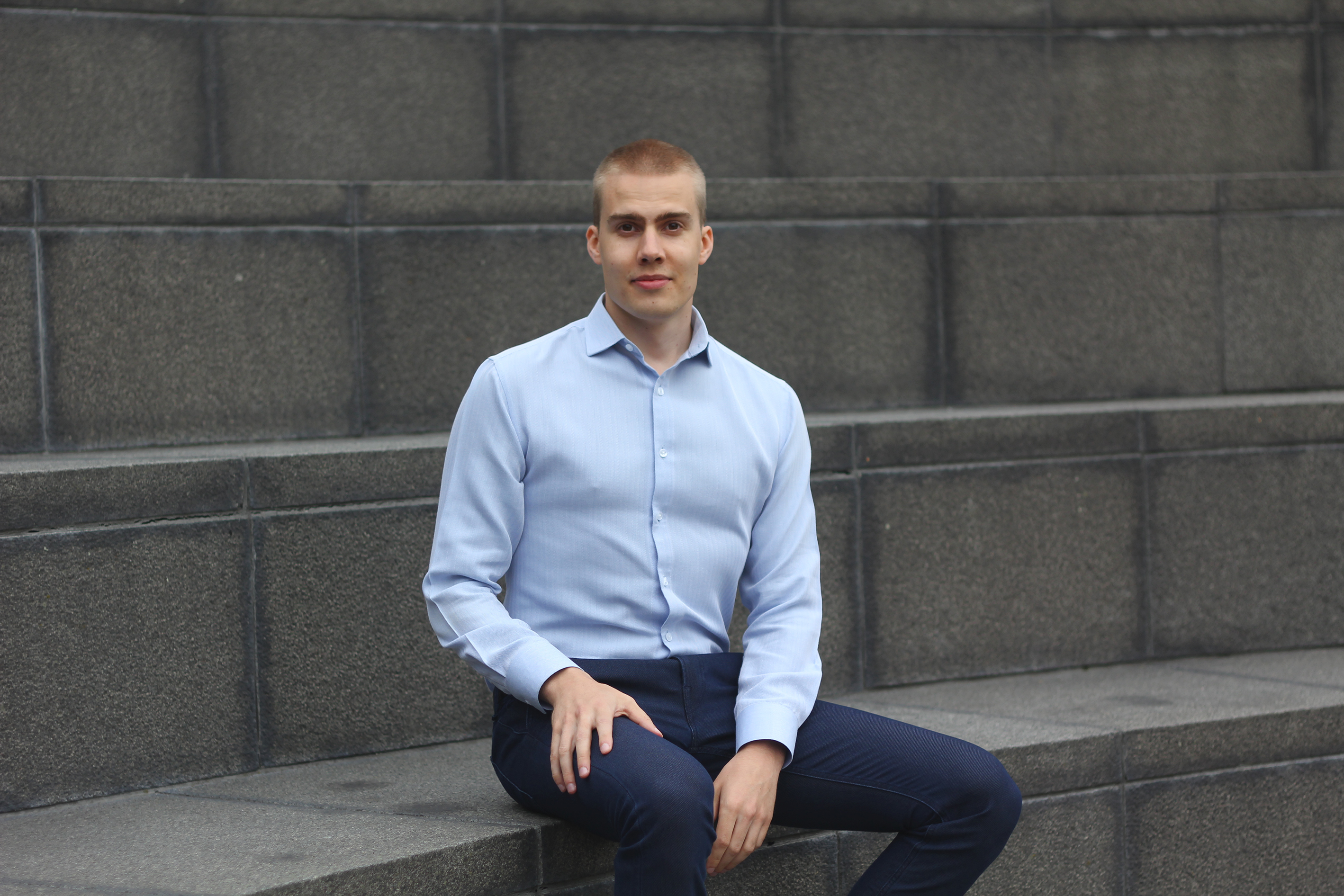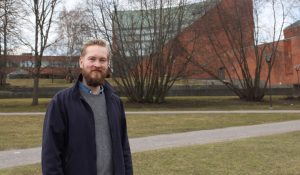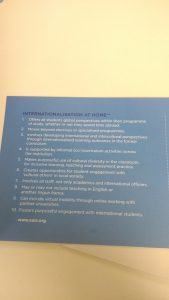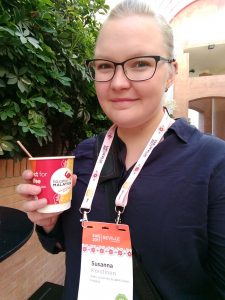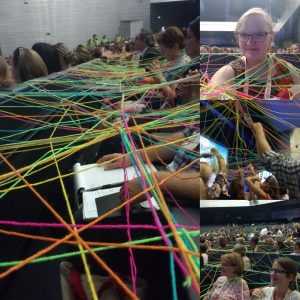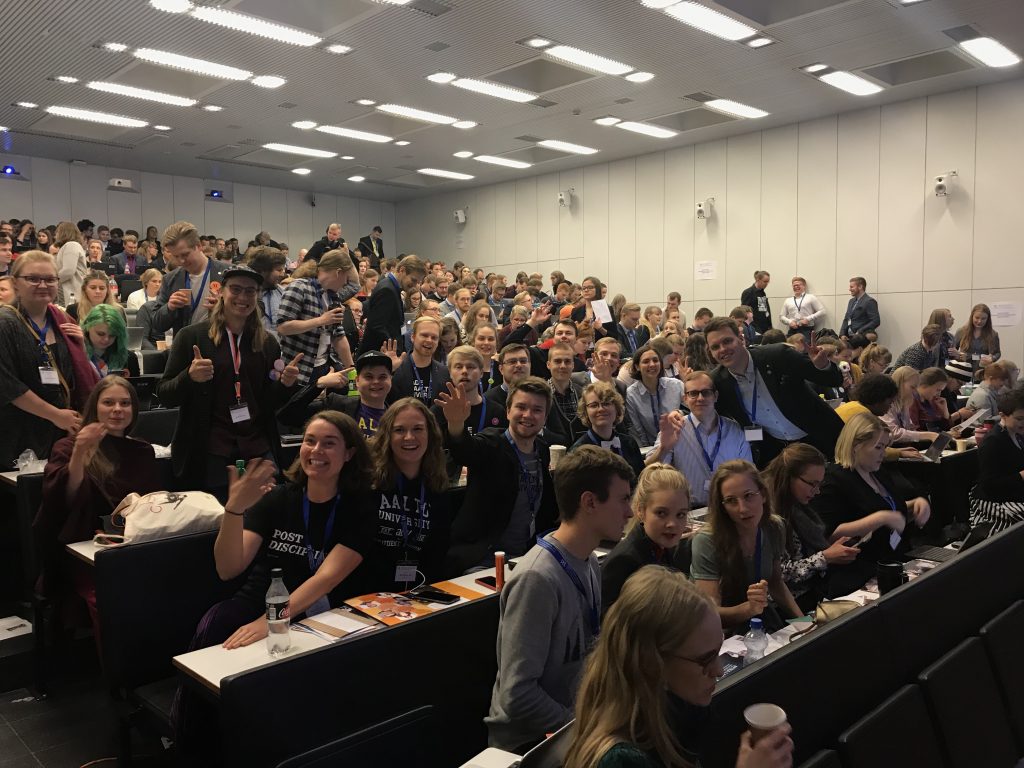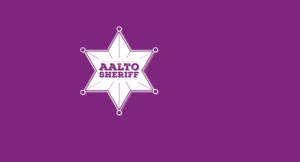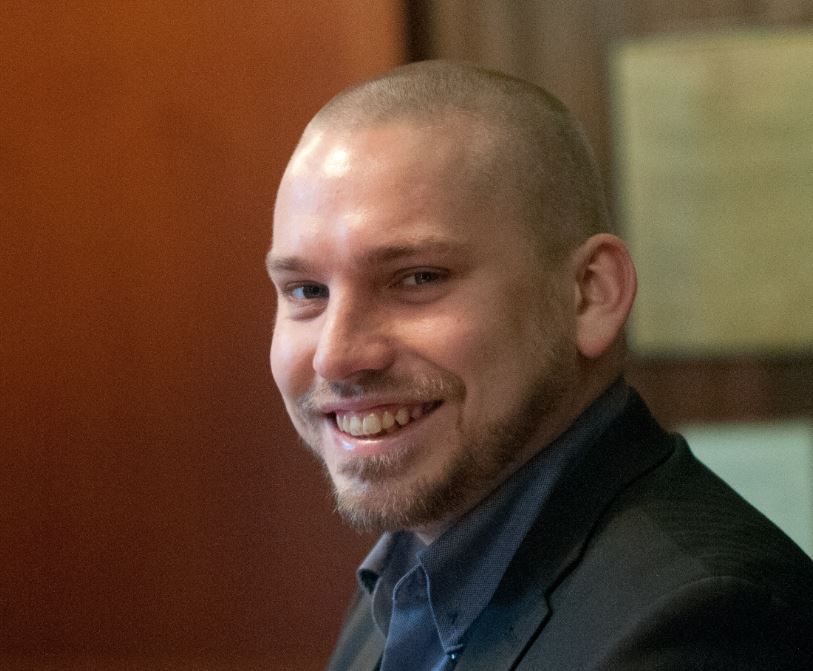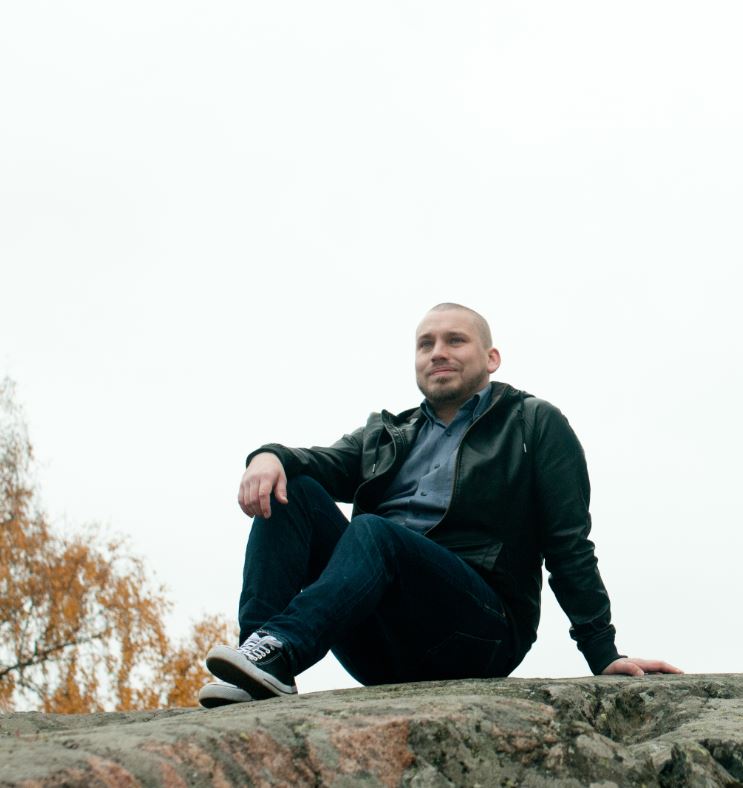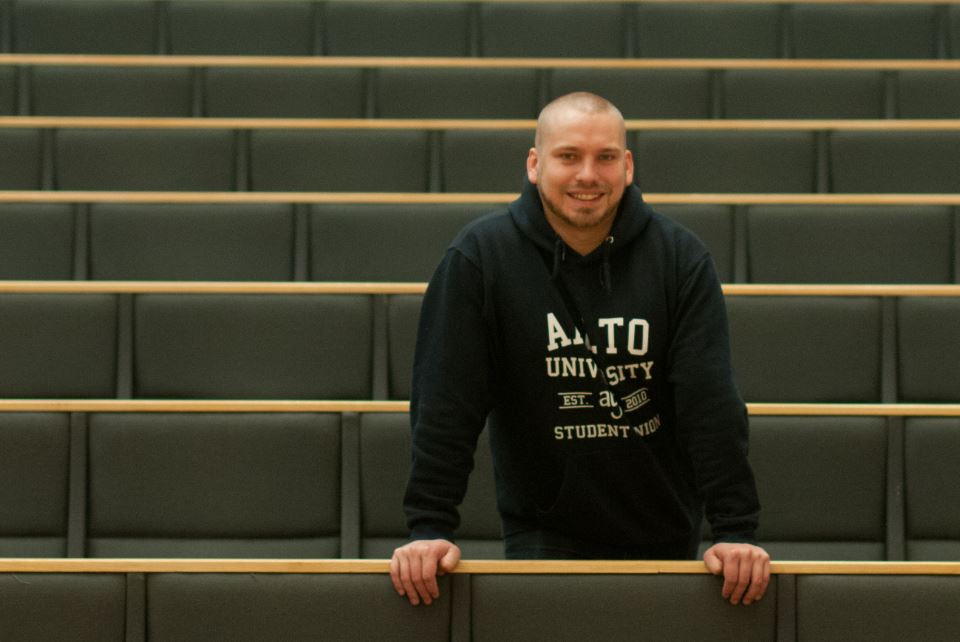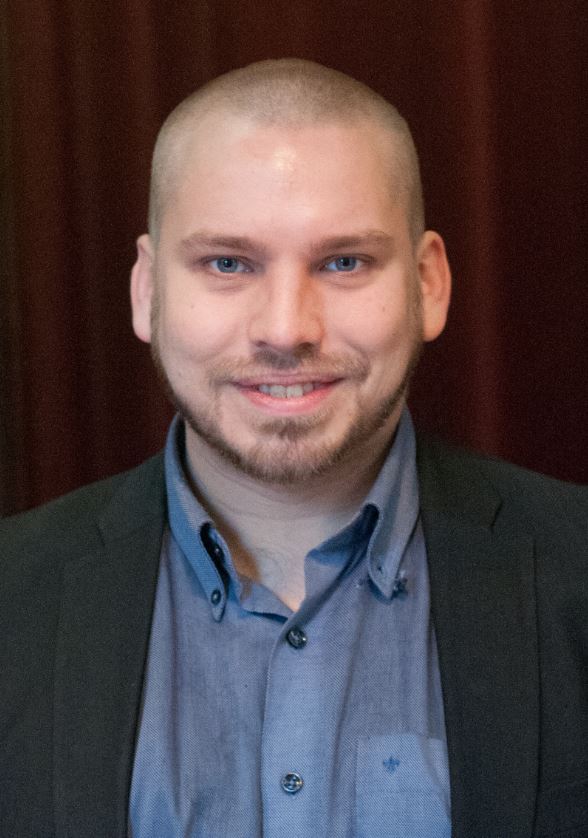This blog ties in with the statement by AYY released on the 9th of March: /en/blog/2017/03/16/ayy-studies-are-not-made-more-fluent-with-scholarships/
During the year 2015/2016, 31.1% of students registered as actively studying at Aalto completed at least 55 credits. Out of the percentage of bachelor students, meaning those who have started their studies 0-2 years ago, 44% managed at least 55 credits. The number is problematic, because university studies have been set to be completed in five years, meaning about 60 credits per year on average; the student allowance is also measured to last for that amount of time. It is hard to believe that only half of students want to complete their studies in five years, if the target time would be achievable. This mantra related to the length of studies is an old cliché that has been repeated since the 19th century, but the whole problem should obviously not be denied.
This is a problem for the university, because the target score of 55 credits per year is one of the grounds for university funding. 10% of university basic funding is based on this indicator. The indicator has been implemented in the university funding model, because the Ministry of Education and Culture uses it to enforce universities to ensure that their studies are of high quality and well organized. The Universities Act requires universities to offer their studies in a manner that they can be completed in five years, and the funding model supports this demand.
University funding has been under pressure for the last couple of years, so each university is aiming to improve the efficiency of their degree programmes. It is good to see, however, that the funding model is a zero-sum game: if a university improves its scores, its funding is not increased, but the increase is split between universities while favouring the ones that have received good results. Aalto has regrettably lagged a bit on this indicator, even though it is doing well in general. Other universities have increased their percentage of quick students more than Aalto.
Universities are aware of the things that support and hinder studies. For example, during the years 2011-2014, Aalto took part in the Kyky-project, which even produced tangible material to improve study enthusiasm and study ability in order to make studies more fluent. The programmes behind it, Campus Conexus and the Opiskelukyky project, along with other studies and surveys, aimed to find out what kinds of things support students in moving forward in their studies. During the last few years, we have also received practical examples from inside Aalto and other universities on how studies have been made smoother without cutting back on student wellbeing, happiness or adding to the workload of students. New information is flowing in from for example the bachelor survey, student wellbeing survey and the Aalto AllWell survey.
Grounds for slower study
Students have different reasons for studying slowly. Some of them are choices, some depend on circumstances. They may be explained in a simplified manner by using the groups defined by Elina Pekonen in her master’s thesis.
- Injuries and sickness
The accessibility of students’ physical and mental surroundings and students’ health problems, along with mental health problems, are some of the biggest factors when studies slow down. These are closely tied with studies slowing down due to indoor air quality problems. Aalto has laudably made efforts to improve accessibility, and the steps taken on campus will, in the long run, make it so that accessibility will no longer be an issue. Regrettably, according to the health survey made by FSHS, about a third of the students have had issues regarding mental health. This can be tackled on a local level with means that support mental health, but universities could also work towards a situation where mental health problems are taken seriously and implement solutions to support accessibility if these problems emerge.
- Social and cultural barriers
Not everyone feels that they are welcome at the university, despite efforts to increase inclusivity. For example, an ethnic minority background, age or other issues may affect how one feels as being part of the group. This has great significance, because connecting to your studies largely comes through social interaction, which cannot happen when one feels alone in their studies. Aalto and AYY are doing work related to multiculturality together, but removing these barriers requires conscious monitoring also on the individual level.
One important issue is the culture within a school or a study group. The atmosphere surrounding a person can support one’s studies or hinder them.
- Difficulties in learning
Dyslexia or other problems in learning are a partial factor in studies slowing down. Several parties offer peer support and accessibility programs can help when organizing studies, but qualifying to receive support can be a challenge at times. The time available for study councillors and study psychologists is limited, and a large impact can be made by teachers with a keen eye. We can ask ourselves how well the university staff can guide students struggling in their studies, and do we a have good enough path from there on out.
- Financial challenges
Financial challenges are truly a problem, especially in the capital region. Living costs add up to 72.1% of the income of a student living alone in the capital region. Financial stress ties in with mental health problems and problems in life in general. Financial problems affect the study pace from two angles: During studies one has to work to get by, but working threatens to stretch graduating, so one runs out of student allowance months. In regards to student allowance, it is extremely important that studies can advance at a steady pace. Aalto has unified some of its conventions, but regrettably the credit received for internships, for example, can still end up being less than the required minimum of 5 credits a month.
- Time management and combining studies and life
These are problems that universities can tackle in more tangible ways. Teaching studying skills, organizing orientation courses and providing students with supporting information on how to commit to one’s studies in order to succeed in them are some of these tangible means. A few years ago, grumbling could be heard from the part of the universities whether this kind of “handholding” is something that they should be required to do, but those complaints have quietened down as knowledge of these tools and evidence on their success has spread. Regrettably, few students are able to fathom how important it is to prioritize studies and connect with them, especially during the first years of studying. Regrettably few teachers also build elements into their teaching that support self-regulation skills. Universities are also poor at supporting students in planning their time allocation. It is sometimes impossible to plan your studies and the related workload for more than half a year ahead, not to mention planning a three-year bachelor degree programme.
- Barriers related to teaching and study guidance
Lastly, we of course have barriers related to the actual studies, which are almost too numerous to list. AYY collected some of the most significant ones last year during the commentary round and in discussions with people in charge of studies. Workload, schedules, unpredictable combined effects, inflexibility, lack of summer studies, rarely held courses, poorly designed courses, the inconsistency of student counselling, different practices between schools, and many other factors have often been brought up, not to mention the challenges related to finding information. We are happy to say that things are constantly developing for the better in the degree programmes. However, we are still facing fundamental problems, such as excessive workload. It would be very important to highlight the functional reforms implemented within Aalto and elsewhere. Using digital aids and other methods to make big lectures more interactive, for example, has resulted in huge improvements in learning results without making the content easier or lowering the bar, which some people still seem to be afraid of.
What should we do?
Different barriers can be dismantled with different methods. Work related to the organization of studies is being done all the time, and the university also has the duty to promote accessibility. Some stones at Aalto have still been left unturned. It still takes four weeks for teachers to check exams, and the next chance to take that one missing course could be a semester away. It is difficult to do anything about the amount of the student financial aid or the cost of living, so we are left with the most interesting alternative, which is the students’ choice to study at the intended pace or slower. Unfortunately, the situation is often left unresolved, or individual methods such as scholarships are offered as solutions. Too often people just complain about how students run off to working life in the middle of the semester, although Aalto is particularly well-known for its working life relations. Employers should also be reminded of the fact that students who work should also be able to complete their studies properly in order to maintain good cooperation.
There has been too little research-based discussion at the Aalto University about how studying can promote commitment and help create motivation. Motivation is often seen as some kind of intrinsic characteristic, even though commitment, perseverance and study skills can be created through studying. These means are not just magic tricks – they are about designing and implementing good teaching and guidance. No teacher should be left alone in this. Development measures are constantly being implemented at the Aalto University, such as conducting wellbeing surveys and taking action based on them, organizing continuous pedagogy training, and developing online learning possibilities. Unfortunately, the conversation still seems to be stuck in place.
The universities that have improved their results and are showing more success than Aalto according to the 55 study credit indicator have not reformed just their curricula, academic counselling and scheduling, but also their internal culture. For example, they have clearly communicated that the increases in funding will be used to improve education, and the students have been provided with highly personal guidance services and contacts. The resources have been used to improve the system, giving everyone a chance to study with full commitment and at the target pace. The students have also done their part: they encourage and help each other out when they see their friends starting to slow down their pace. Changing the culture takes time, both for the teachers and students, but life is not a race. The university is a place for learning, not for maximizing the results of financing model indicators. As many students as possible should be made to understand how committing to a target-oriented study pace can be of help with their own studies.
Sources:
Material from the Campus Conexus project: http://www.campusconexus.fi/
The Opiskelukyky model, developed as part of the project: http://www.opiskelukyky.fi/english/
Elina Pekonen (2010): Esteitä opintopolulla? Opiskelijoiden kokemuksia esteistä ja esteettömyydestä Kuopion yliopistossa. http://epublications.uef.fi/pub/urn_isbn_978-952-61-0132-3/urn_isbn_978-952-61-0132-3.pdf
Everyone can find out more about the newest trends in university pedagogics and education experiments through the Yliopistopedagogiikka magazine: https://lehti.yliopistopedagogiikka.fi/
Results of Finnish universities according to the 55 study credit indicator: https://vipunen.fi/fi-fi/_layouts/15/xlviewer.aspx?id=%2Ffi-fi%2FRaportit%2FYliopistokoulutus+-+v%C3%A4hint%C3%A4%C3%A4n+55+op+suorittaneet+uusi+-+yo.xlsb
More information:
Petteri Heliste, member of the Board
Susanna Koistinen, educational policy expert
